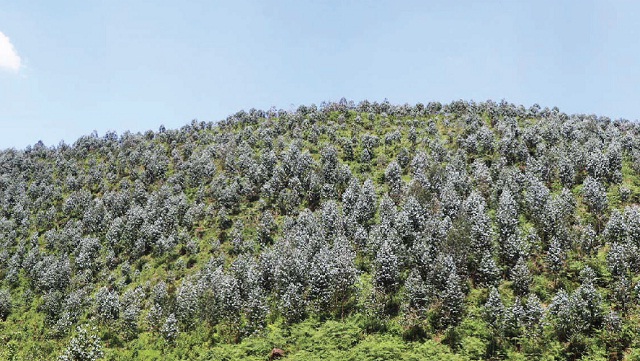
Exploiting the opportunities of forestry in Rwanda since 2011: NFC Story below
*****
Kampala, Uganda | FRANCIS BYARUHANGA | Rwanda celebrated world forestry day on 21st March at Rubavu district southern Province. The annual celebration seek to deepen planting activities and raising awareness among the communities in villages and young people around. The theme of the day was dubbed “forestry and sustainable cities”. New Forests Company, CEO, Dube Simbarashe explains more about the celebration of the day, role of the private investors in eradicating environmental degradation and many more others in an interview with the Independent Magazine Francis Byaruhanga. Below are excerpts
What does NFC do?
New Forests Company is a socially responsible forestry and timber Production Company intended to exploit the opportunities of forestry in Rwanda brought in the country in 2011.
What is your role as stakeholders on the celebration of the forestry day?
We are scheduled to join with the responsible ministries and agencies like Ministry of Lands and forestry, Rwanda environmental management and many others to celebrate the forestry day on 21st as we plant trees at Rubavu where the event will take place and raising awareness on benefits of forests in the area.
Today the New Forest Company is managing an area of 10,046 hectares around Nyungwe National Park with a planted area of 8,215 hectares of which 65% is pine, 15% eucalyptus and 20% other spices. How are you exploiting this to make sure that communities benefit from this?
Job creation has been established and skills development as well as poverty alleviation among our neighbors as we employ almost 350 people around the Nyungwe Forest that straddles across three districts sorrounding the area inclusive Nyamagabe,Rusizi,Nyamasheke. With the doubling of production and value addition, these numbers will definitely double, benefiting communities living around the forests. The project did not impact the livelihoods by providing employment opportunities in the area only but as well as providing 7,000,000 tree seedlings that was distributed to 35,000 out growers and hired a full time first extension forester to scale out grower’s scheme with almost 110 poles of electricity being provided in community neighboring our timber processes factory in Nyamagabe and Nyanza in Busasamana sector. NFC has so far spent $450,000 on community projects; executed ten clean water projects in communities around the forest; built four classroom blocks; established 150 beehives in various cooperatives and supported third parties that grow seedlings for the company. NFC gives seedlings to farmers at no cost to grow wood-lots, makes follow ups to check on performance of the trees and advice farmers when it’s time to thin & prune. NFC has, to date, distributed more than 350,000 seedlings for over 250 hectares to private growers.
In the past, treated poles were imported as final product from Uganda or shipped in from as far as South Africa? What is the situation now?
Today, 100% value addition is done in Rwanda and on the affordable prices where 1 electrical pole is sold locally on 40,000 frw which could be bought on 60,000frw when it is exported.
What inspired you to extend the rare business of ‘forestry’ in Rwanda?
NFC started in 2004 in South Africa and decided to extend forestry business to East Africa and Rwanda signing a concession with the government since 2011 on the country mostly struck with the drought, environmental degradation accompanied with the landslides, soil erosion and environmental degradation to solve search issues. The erosion and landslides challenges causing migratory dynamic of people from the most densely populated provinces in the North part of the country inspired me to address those issues by planting more trees that would reduce on the soil erosion as a result the business was extended to Rwanda. NFC parent offices is based in Johannesburg and currently operating in the East African countries of Uganda, Tanzania and Rwanda and the company spent considerable effort and time building good working relationships with the governments of these countries in order to build a business that will endure and meet East Africa’s economic development goals.
 The Independent Uganda: You get the Truth we Pay the Price
The Independent Uganda: You get the Truth we Pay the Price





